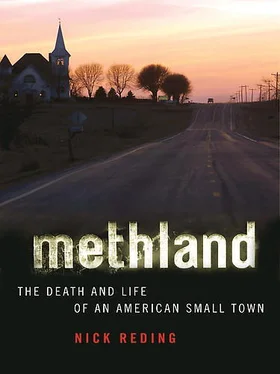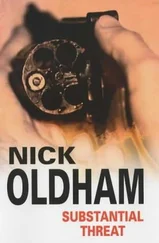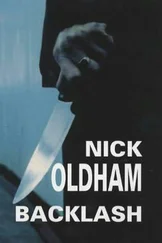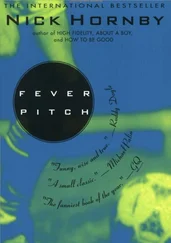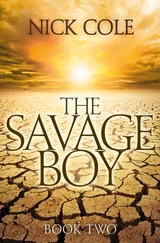Major was still on probation, still attending mandatory Narcotics Anonymous meetings, and still working a construction job to which he was always having to find a ride; his license would remain suspended for another six months. The good news, he said, was that he had a job, and that each day he stayed clean, he was a step closer to being free of meth forever (he hoped) and to getting off probation. Once he could drive again he hoped to find a house for himself and Buck and maybe to pick up his studies at the community college where he’d left them for dead six years ago. One day, he said, he still hoped to become a machinist.
The bad news, said Major, was that he lacked anything in which to believe. He was working hard—at staying clean, at raising Buck, at making money. But without meth, Major found it impossible to feel, as he put it, “happy.” It was precisely the dilemma that Clay Hallberg had seen so many times in patients like Roland Jarvis. Even when Major did the right thing, he couldn’t quite believe in its rightness, for that thing didn’t satisfy him—meth did. The first time I spoke to Clay on the phone, he’d said that an entire generation of people was suffering from this, and that meth was less the culprit than the perfect metaphor. To get back to normal—that is, to begin once again to derive meaning from the humdrum facts of life—might take years. Clay’s own recent epiphany was essentially that intellect cannot substitute for instinct—knowing is not feeling. In the same way, Major’s self-admonishment that he ought to be grateful is no substitute for the neurotransmitters—and the feeling of well-being they create—that he can no longer produce. In the meantime, the gravitational pull of meth, with its pyrotechnic promise of biochemical ecstasy, could be overwhelming. Major, standing in his kitchen on a Saturday night, seemed to be searching aggressively, almost violently, for order, even as he was resolved to the fact that he would not find it. I asked him if he was ready to revert to his given name, Thomas, or if he still preferred his nickname.
“It’s not a nickname,” he said. “It’s who I am.”
The first time I’d met Major we’d gone on a glorious July day to an isolated park a few miles outside town, at Major’s request, to play Frisbee golf. The course was laid out in the woods, and each “hole” was a large metal basket set at certain distances, from a hundred yards to several hundred, from each “tee,” which was nothing more than a mowed patch of grass amid the trees. After playing, Major instructed me to take a shortcut on the way home. As one gravel section road led to the next, with green, chest-high corn obscuring the horizon in every direction, it was obvious we weren’t headed back to town but, rather, farther into the country. Major asked me several times if I knew where I was, knowing well that I did not. He clearly enjoyed the control. Eventually, he told me to pull in the driveway of an isolated farmhouse, which turned out to be the current residence of the Family. There, the Sons of Silence leader, Bob, was living with his daughter—Buck’s mother—and presumably batching meth in the barn, just as he’d been doing when Major was sent to jail.
Only a few days before, Bob had called Bonnie and Joseph in the middle of the night to say that he was coming to kill them and Major, to burn their house down, and to kidnap Buck. And yet, at the first chance Major had, he’d concocted an elaborate plan to play a game of Frisbee golf in an isolated park in order to be driven back to the life he both loathed and longed once again to live. When I pulled out of the driveway, Major pleaded for me to take him back, then refused to tell me how to get back to town. He berated me, threatened to have me killed, and pounded the dashboard as I drove. Major pulled out a cell phone, called a girl he used to know, and promised me that if I’d take him back to the Family, he’d get the girl high and she’d do anything I wanted. It took an hour of driving around aimlessly before I finally got him back home.
By that stretch, Major had come a long, long way. He still prayed for Buck’s mother to come back to him, but only if she were clean. He still dreamed of the Family when he slept at night, and had to fight the occasional urge to rejoin them, but it was no longer a daily battle he waged with himself. In order to see more clearly still how far he’d come, one has only to think of Roland Jarvis, for example, or even Lori Arnold, who was due out of federal prison for the second time in June 2008.
The last time I’d visited Jarvis, oddly, was the only time I’d ever seen him outside his mother’s house. He was sitting in his mother’s front yard in a lawn chair, wearing his customary flannel shirt and heavy warm-up pants despite the heat, idly chatting with neighbors walking by on the sidewalk. That, though, seems to have been a high point. I’d tried to contact Jarvis, but to no avail, which I took to be a bad sign, given how welcoming he’d been during two years’ worth of my trips to Oelwein. No one seemed to know where he was or what had happened to him. Clay Hallberg, his doctor, hadn’t seen him in months. It was as though Roland Jarvis had been suddenly swallowed up by the musty living room floor of his mother’s house.
Yet here was Major, twenty-seven years old (Jarvis would turn forty in December 2007), staying clean, holding a job, seeming to enjoy the sight of his son, who, so far, needed no transplants and no special education. Gone were the days when Major was so high that he mistook a nickel for baby food. (Buck nearly choked to death on the nickel, while Major, fearful he’d be put in jail if he took the child to the hospital, drove Buck to his parents’ house and had them take Buck to the ER. Once there, Buck had emergency surgery to remove the nickel from his trachea.) No longer did Major seem to have the energy for the monologues describing how enemies of the Family were duct-taped to chairs and given lethal amounts of intravenous methamphetamine, their bodies thrown to the hogs. By December 2007, Major had lost his enthusiasm for the Sons’ white supremacist espousals, which, ironically, he’d always spewed to an inaudible beat—as though, even as he raged against blacks, one of his beloved Wu-Tang Clan riffs played in his mind. Compared with Roland Jarvis, Major had triumphantly entered an entirely new realm.
Major’s hope was nonetheless tentative. For one thing, he was attempting to stay clean of meth while refusing to stop drinking. (When I asked him about this, he asked if drinking was illegal. I shook my head. To which Major added angrily, “Then I rest my case.”) Just how close Major was to losing the ground he’d gained was made clear in a story he told me while Buck, drowsy with his belly full of pizza, climbed inside his newly rebuilt fort, ostensibly to watch more Looney Tunes, and fell quietly asleep.
The previous night, Major said, he had put Buck to bed and walked in the agonizing cold to a favorite bar eight blocks away. Between the time he’d spent with the Family, the time he’d spent in jail, and the time he’d spent essentially hiding in his parents’ home, afraid that any social contact would lead to a relapse, most of Major’s friends had moved on in one form or another. Many had left town looking for work, or had married and taken jobs that kept them out of the bars at night. The rest, not unreasonably, were afraid to get involved with a former neo-Nazi meth dealer. But that night, Major had run into a girl with whom he’d gone to high school, and on whom he’d had a long-buried crush. As they talked and drank, Major became aware that not only were his adolescent feelings still fresh, but that she, too, had long had feelings for him.
The sudden awareness that his mind was at ease was almost dizzying, since he’d been constantly preoccupied for so long. Life, Buck, his parents, his past—for a sweet, short time, thoughts of all these things dissolved away with the pitchers of beer and the warm, dark room. He was drunk and happy, reconnecting with a part of his life that was free of the burden of his recent entanglements. He and the girl laughed about how, back in high school, Major, who’d never done drugs of any kind until after he’d graduated, had actually given a speech to the student body on the evils of methamphetamine.
Читать дальше
